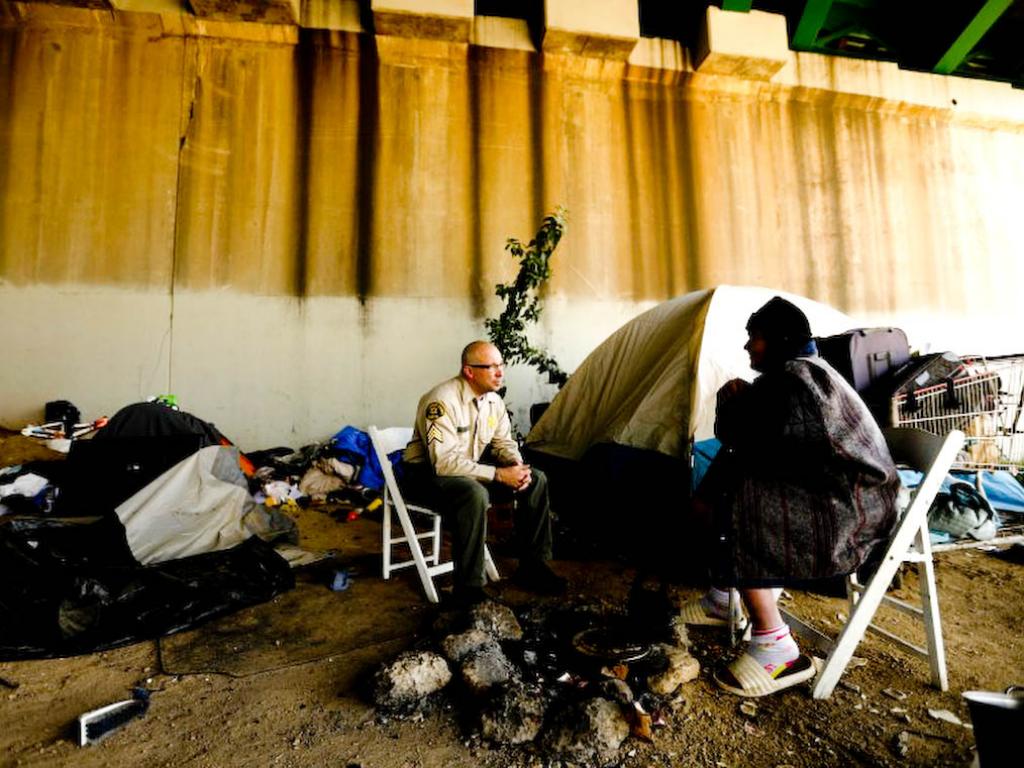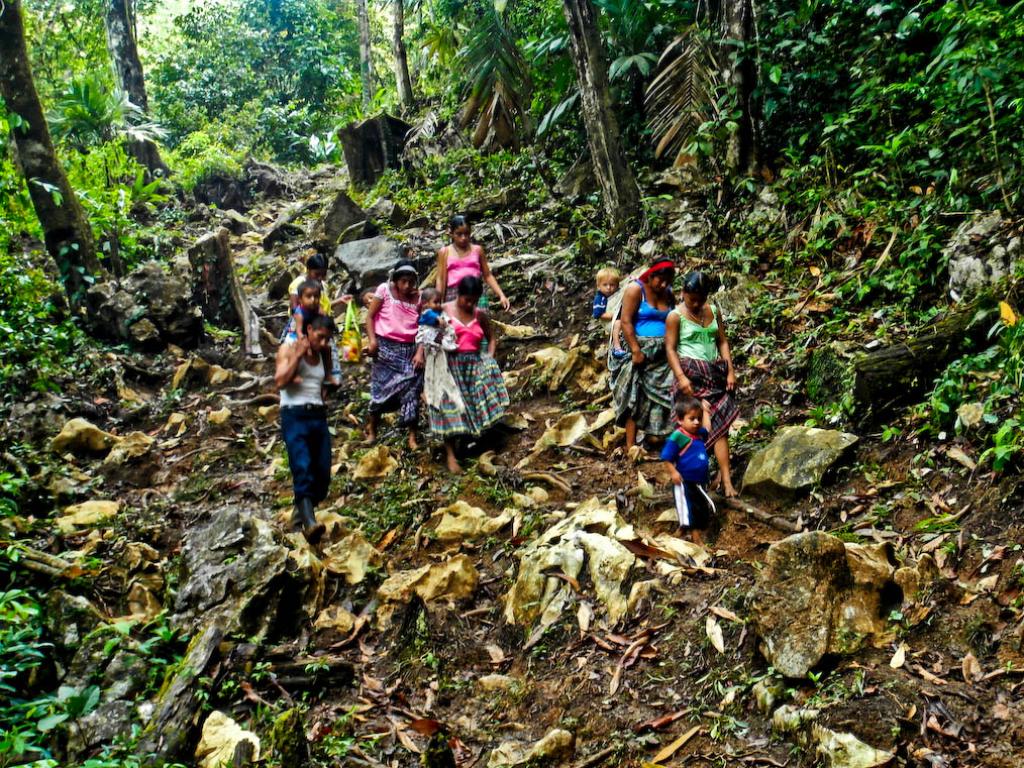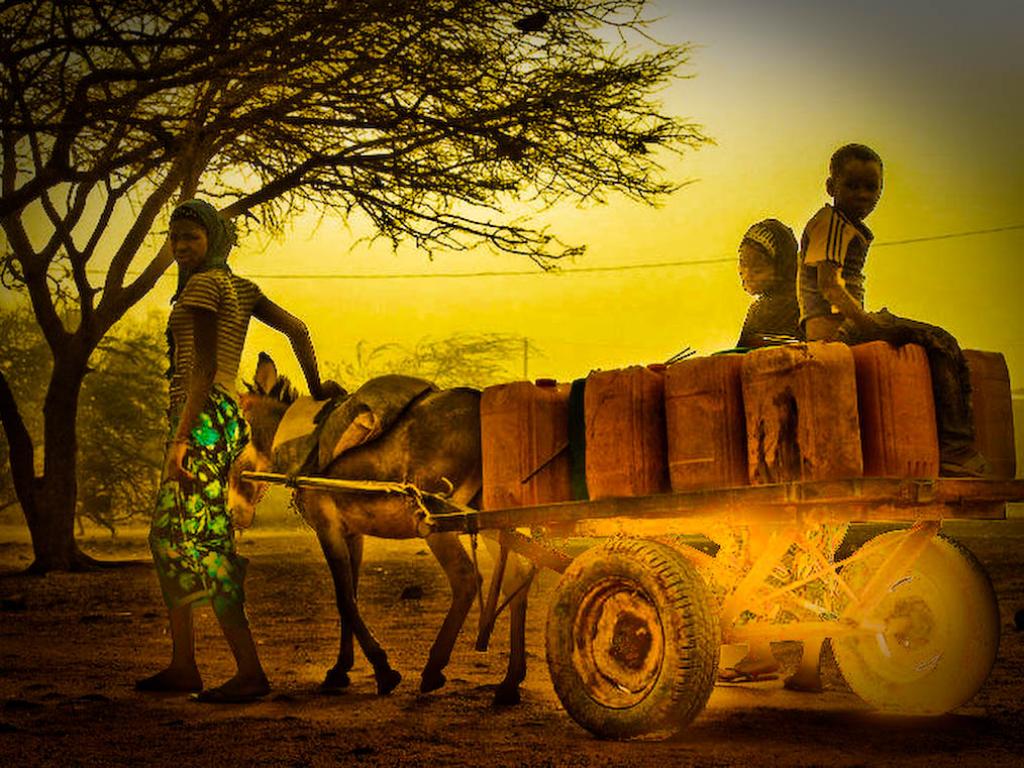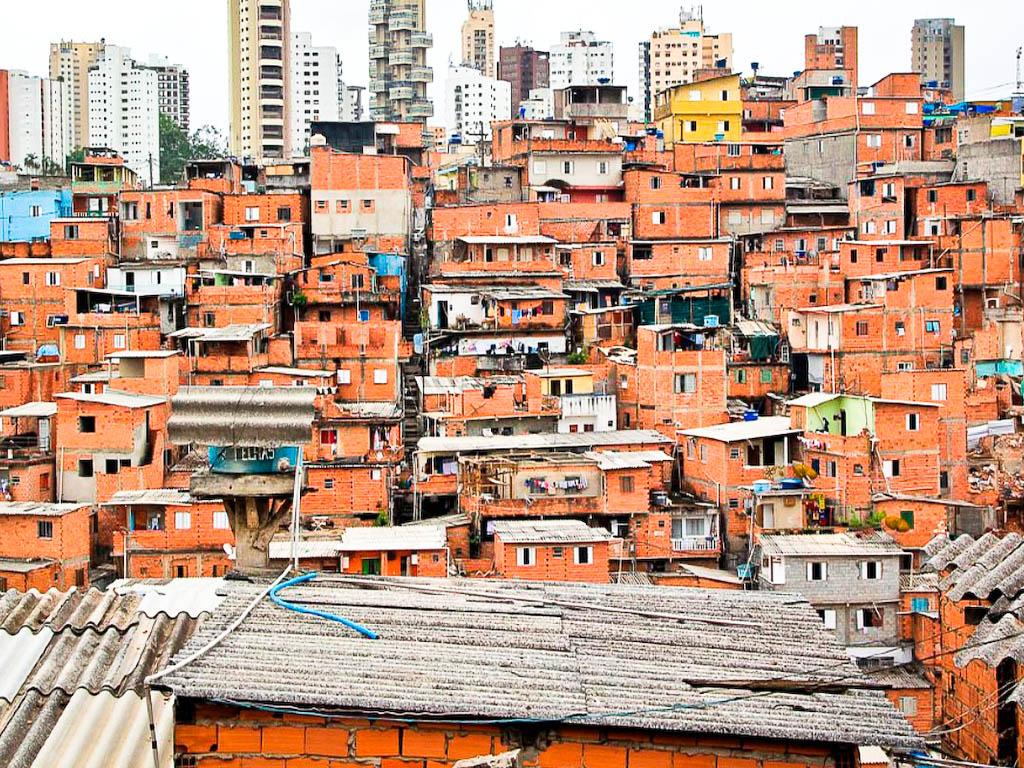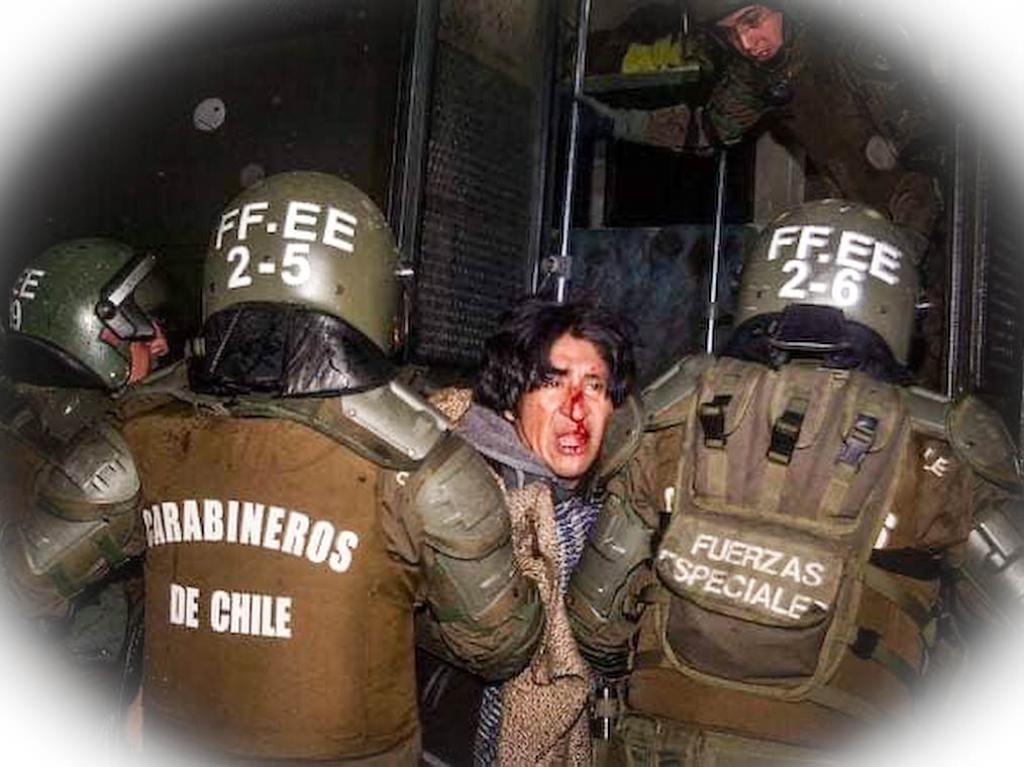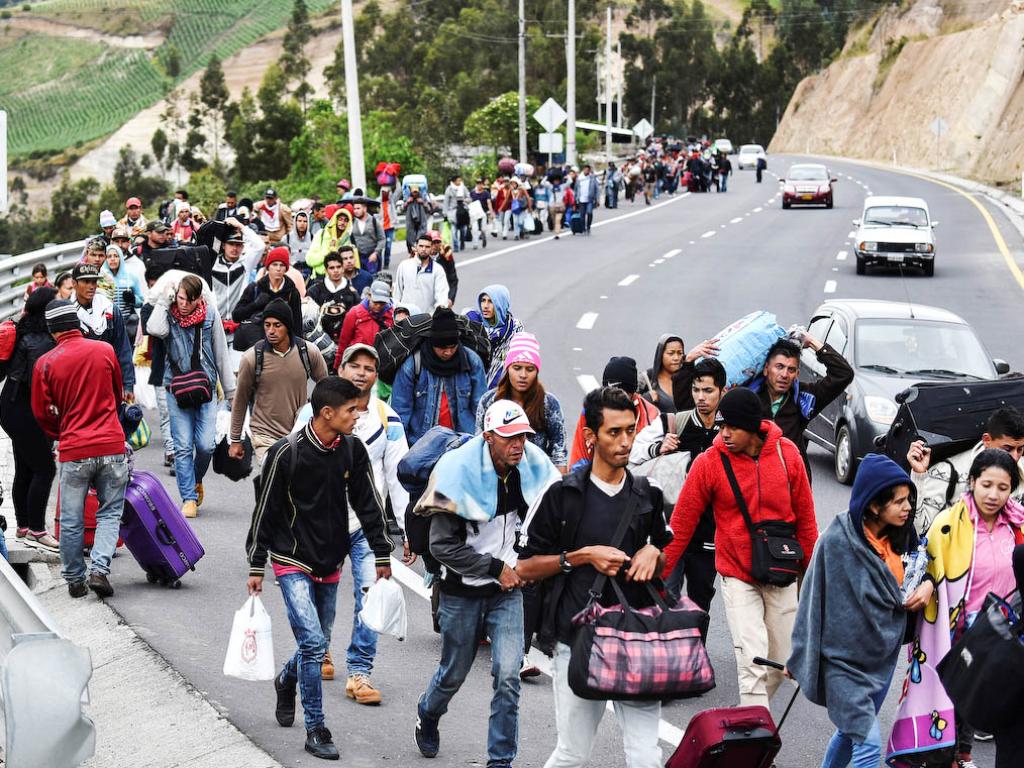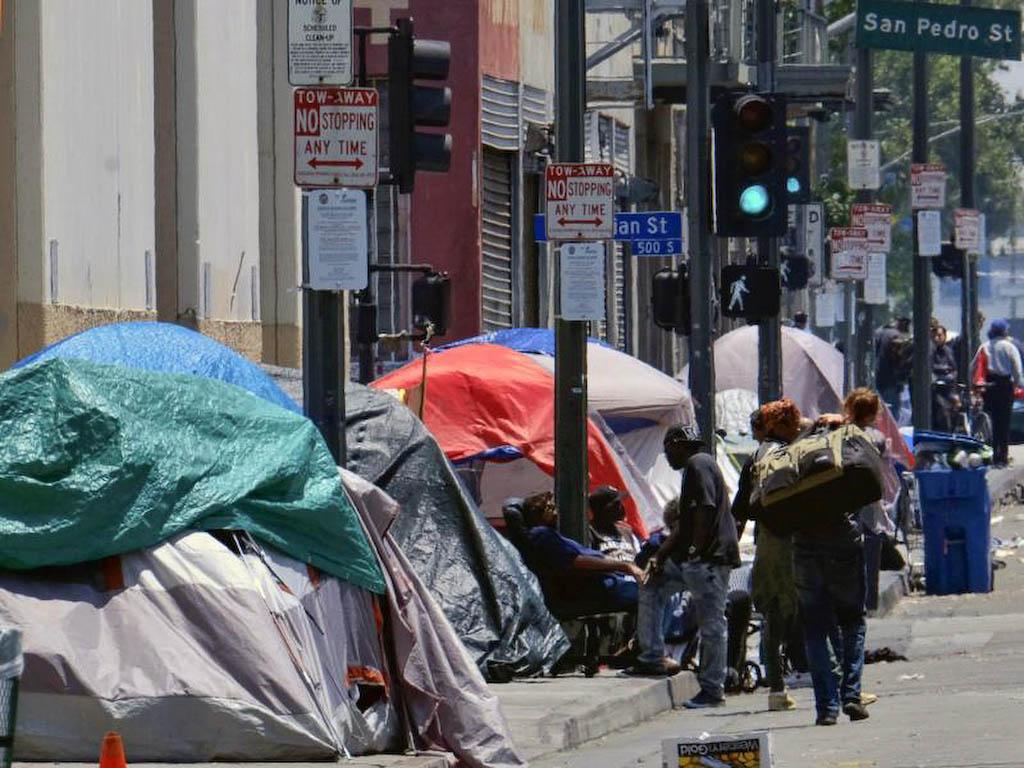Jpic News from John Paul Blog - Vol. 8 - N 1
|
THE NEWS OF THE MONTH
A Culture of FearHumans are wired for survival; we act out of fear in the face of danger. However, “Fears are educated into us, and can, if we wish, be educated out” (Karl Augustus Menninger), just because “Ignorance is the parent of fear,” (Herman Melville). While fear is a normal attitude facing a real danger, “Of all the liars in the world, sometimes the worst are our own fears” (Rudyard Kipling fear). “Too many people are thinking of security instead of opportunity. They seem to be more afraid of life than death” (James F. Byrnes). At the start of a new year, educating out of our life any deceiving fear, should be the way to pave a peaceful time and a clever way of living with others, for “Fear is the main source of superstition, and one of the main sources of cruelty. To conquer fear is the beginning of wisdom” (Bertrand Russell). Moreover, fear is "being fanned as a political strategy," says Jim Wallis in an article. "Political leaders are weaponizing fear to maintain power, turn people against each other, inspire discrimination, and even incite violence." This fear can be pervasive in some communities, such as in some parts of the United States where, "Parents of children of color are afraid every time their children leave the house," and many in the Latin community "live in fear each day that ICE will tear their families apart." Go on reading | |
|
THE GOOD NEWS
Better than nothingIn the Los Angeles Times newspaper of December 18 2019, appeared a comforting news, Yes, homeless people have rights. Even in Venice, signed by Robin Abcarian. “The U.S. Supreme Court showed that, among its many talents, it’s pretty damn good at simple calculations: If cities don’t have enough beds to shelter homeless people, then police may not force the homeless off public sidewalks or out of public parks. Sleeping in parks, in sidewalk tents or on the sand out of desperation is not OK in any moral or ethical sense, but at least for now, it’s legal.” Not only, Los Angeles City Council, “voted 13-0 to approve the opening of a homeless shelter in Venice, a few blocks from the beach”. The space, an unused bus yard, will put a roof over the heads of about 154 people. The arguments against the Venice shelter were mainly two: “Homeless people should not be allowed to live at the beach, where homes cost millions of dollars. Homeless people should not occupy a prime piece of real estate that could otherwise generate millions of dollars in revenue for some developer.” However, homeless people already live at the beach, and Robin comments, “Each time I write in favor of homeless shelters or transitional housing near the beach, I get an earful of indignation. Much of it can be boiled down to this question: Why don’t they all move to the desert, where land is cheap and abundant?” Of course, people live where they want, but he asks, “Who would choose to live in the high desert, with its unbearably hot summers and unbearably cold winters?” “Why assume that desert cities are more welcoming to homeless people than others?” Moreover, he answers, “Lancaster showed why homelessness is every bit the divisive issue in the sparsely populated Antelope Valley as it is in urban centers. Of the estimated 59,000 homeless people in Los Angeles County, only about 3,300 live in the entire Antelope Valley.” The question, the article goes on, is the attitude of rich people towards homeless people: a bill, thank God refused on December 10, would have banned food giveaways to homeless people on public sidewalks, streets and parking lots. “It could be handed out in public parks, but only if charitable groups — or individuals — secure park rental and Los Angeles County health permits.” Mayor R. Rex Parris had even advised people “to carry concealed weapons for protection against homeless people, 60% of whom, he said, are criminals and thugs. A few years ago, he tried to shut down the Lancaster Metrolink station, accusing Los Angeles of shipping homeless people to the Antelope Valley. Bringing food to people who shelter under bridges, or in doorways, said Parris, “is a crisis waiting to happen.” Mayor Parris also complained that it is unacceptable that homeless people “defecate on the streets,” “defecate in doorways” and especially “in the parks”. “Who in the world would disagree with that?” asks the journalist. “But the answer is not to force good Samaritans to jump through bureaucratic hoops to give a hungry person a peanut butter-and-jelly sandwich. The answer is to provide toilets where they are needed.” Many church and community volunteers take food to people. “I’ve got to go where the need is,” said Pastor David Cowan. “And the need might be up under a bridge, the need might be in a brook, the need may be anywhere. Don’t penalize people for going to feed people.” Regina Thomas told the council she spent Thanksgiving driving in the snow to feed homeless people. “I’m not going to stop doing it today,” she said. “Not next week, not next year. So lock me up today!” Thanks to good people like these, City Council members tabled the issue for now. Robin Abcarian can conclude, “Their pointless exercise has overshadowed some of the positive developments in the city, including the construction of a new, long-overdue complex that will provide permanent and temporary housing for about 300 people.” For the entire article, see Yes, homeless people have rights. Even in Venice
Postscript, from a friend. I remember once hitchhiking in the south of France as a student; I slept on the beach in Nice (Nizza) in 1967. Sand is hard, very hard to sleep on! And, the police woke everybody up at 5am so that we wouldn’t “disturb” the ‘rich’ people of Nice, coming to the beach. An experience! | |
|
THE WORST NEWS
Latin America has underestimated inequalityWhat is happening in Chile, Venezuela, Ecuador, Bolivia is just the tip of the iceberg of a social unrest that, under the ashes, begins to smoke and flame. A component of the convulsions and movements that generate the wide changes that occur worldwide. ECLAC in its Social Panorama of Latin America 2018 puts its finger on the sore. “For nearly a decade, the Economic Commission for Latin America and the Caribbean (ECLAC) has positioned equality as the basis of development. Today we confirm once again the urgency of moving ahead on the construction of Welfare States, based on rights and on equality, which provide male and female citizens alike access to comprehensive and universal social protection systems and to essential public goods, such as quality health and education, housing and transportation. The call is being made to forge social compacts for equality,” Alicia Bárcena, the regional organization’s Executive Secretary, said today at the launch of the Social Panorama of Latin America 2018 report. A decrease in income inequality is key to resuming the path of poverty reduction and achieving the targets established in the 2030 Agenda’s Sustainable Development Goal 1. “It is necessary to grow to equalize, and equalize to grow. Overcoming poverty in the region not only requires economic growth; it must be accompanied by redistributive policies and active fiscal policies,” ECLAC states in the study presented at a press conference today in Santiago, Chile. Go on reading | |
|
CELEBRATING!
Let's open our eyes to climate change!December’s Climate Summit (COP25), held in Madrid because of social difficulties in Chile, contributed very little towards combatting the serious ecological crisis, which the planet is experiencing. The first time that I entered the forest of the Democratic Republic of Congo, I was advised to keep my eyes wide open, because the most dangerous snake is the one you don’t see. If you see it, you take action immediately and you escape from the danger. I remembered this anecdote after having participated in the most recent Climate Summit (COP25), because I think that the political leaders who met in Madrid did not see the snake. It seems that they were blind and deaf, caring only about protecting their own egotistical interests without seeing the suffering of so many millions of people because of climate change and without listening to the scientists who, for the most part, confirm how climate warming, the result of human activity, is in the process of destroying the planet. The delegates of the nearly 200 countries present at the summit only reached a minimal agreement and expressed the pious wish of having more ambition for the future in terms of reducing greenhouse gas emissions, but without agreement on the principal aim of the meeting: regulating CO2 markets. I apologise for my lack of humility, but I had foreseen this fiasco before the 15th December, the final day. While eating in the food area of the summit, I noticed that many people were leaving food abandoned on the tables. I questioned one of the waitresses and she confirmed that large quantities of food were binned every day. So, I stopped and said to myself: “I don’t think that those who throw away food have enough sensitivity to be able to find solutions to the complicated challenge of climate change, which is going to demand enormous sacrifices from everyone.” Go on reading | |
|
TAKE ACTION NOW!
How to Save Energy Easily at HomeOne consequence of human-caused climate change is extreme weather, including more intense heat waves. How to address both problems that are causes and consequences? People tend to wait for their salvation from outside, from “others” when not directly from God. Summit and street protests, even strikes from school, campaigns against politics and corporation. Everything but not changing one’s personal style of living. Saint Paul would say, “Some are conducting themselves in a disorderly way, by not keeping busy but minding the business of others. While a consequence that becomes a cause of climate change is the higher energy use at home. A 2015 study by the Proceedings of the National Academy of Sciences estimated that a boom of this century in air conditioning use alone will nearly double residential electricity consumption. This is what is known as a positive feedback loop – and it is a problem. Do you really want a solution and be part of the solution? Here are 10 easy ways to reduce power use in your house or apartment, five for the winter and five for the summer. Go on reading | |
|
KNOWING THE SDGs
Goal 11: Sustainable Cities and CommunitiesMake cities inclusive, safe, resilient and sustainable. Cities are hubs for ideas, commerce, culture, science, productivity, social development and much more. At their best, cities have enabled people to advance socially and economically. With the number of people living within cities projected to rise to 5 billion people by 2030, it is important that efficient urban planning and management practices be in place to deal with the challenges brought by urbanization. Many challenges exist to maintaining cities in a way that continues to create jobs and prosperity without straining land and resources. Common urban challenges include congestion, lack of funds to provide basic services, a shortage of adequate housing, declining infrastructure and rising air pollution. Rapid urbanization challenges, such as the safe removal and management of solid waste, can be overcome in ways that allow them to continue to thrive and grow, while improving resource use and reducing pollution and poverty. One such example is an increase in municipal waste collection. There needs to be a future in which cities provide opportunities for all, with access to basic services, energy, housing, transportation and more. Facts and figures
Goal 11 Targets. By 2030, - ensure access to adequate, safe and affordable housing and basic services and upgrade slums - provide access to safe, affordable, accessible and sustainable transport systems, improving road safety, by expanding public transport, with attention to the needs of those in vulnerable situations, women, children, persons with disabilities and older persons - enhance inclusive and sustainable urbanization and capacity for participatory, integrated and sustainable human settlement planning and management in all countries - strengthen efforts to protect and safeguard the world’s cultural and natural heritage - reduce the number of deaths and of people affected and decrease the direct economic losses relative to global gross domestic product caused by disasters, including water-related disasters, with a focus on protecting the poor and people in vulnerable situations - reduce the adverse per capita environmental impact of cities, by paying attention to air quality and municipal and other waste management - provide universal access to safe, inclusive and accessible, green and public spaces, in particular for women and children, older persons and persons with disabilities - support positive economic, social and environmental links between urban, peri-urban and rural areas by strengthening national and regional development planning - increase the number of cities and human settlements adopting and implementing integrated policies and plans towards inclusion, resource efficiency, mitigation and adaptation to climate change, resilience to disasters, and implement holistic disaster risk management at all levels - support least developed countries, including through financial and technical assistance, in building sustainable and resilient buildings utilizing local materials. | |
|
KEEP HOPING
Joy is in everything, know how to extract itThe prophets announced the time of the future Messiah with the promise, Justice and peace will embrace. Watching this short video with the repeated words "We wish you a merry Christmas and a happy New Year" we can think that happiness and poverty, simplicity and joy embrace. Albert Tévoédjrè's book La pauvreté richesse des peuples (The poverty wealth of the people) comes to mind. “It sometimes happens that common sense combined with intelligence seem to join the paradox and lead to utopia. It is the first impression that one experiences on reading the admirable latest book by Albert Tévoédjrè. The paradox appears from the title and develops in the first chapter. Utopia seems to triumph at the end in the solution proposed for the development of the Third World; common sense and intelligence - supporting here a vision of the man who wants to respect everything and assume everything - are everywhere present and everywhere are essential, as it is natural, with the force of evidence”. It is the advantages of poverty, or frugality, in a simple life and often more fulfilled than the existence with great reinforcements of superfluity that characterizes the society of Western consumption! The secret to having it all is to believe that you already have it (Frances Nickolas). Confucius said, Joy is in everything, you have to know how to extract it. There is no path to happiness: happiness is the path, happiness is a journey not a destination. Be happy, not because everything is good, but because you can see the good in everything. If you want to live a happy life, attach it to a goal, not to people or things (Albert Einstein). See the video Merry Christmas by Masaka Kids (https://www.youtube.com/watch?v=pVyCA3B8myI) | |
|
WORTH THINKING ON
It's not a matter of 30 pesos, but of 30 yearsPresident Sebastián Piñera reacted to the civil disobedience of secondary students in the Santiago Metro with the brutal force of the militarized police, causing a social upheaval. This social upheaval exploded in the violent destruction of the neoliberal model iconic symbols, in acts of vandalism, looting and fire, as in the pacifist mass marches, popular self-convened assemblies and social organizations demanding rights and dignity. Piñera, greatly weakened by the uncontrollable social chaos, the massive marches, and the allegations of human rights violations, on the November 12 night called for peace. Well, apparently, he had not obtained the support to proclaim a State of Exception, as he would have preferred, and put the Armed Forces in control of the situation. However, he offered no plan on how to reach this peace. Therefore, this scenario led the parties of the delegitimized political class to seek, together, an urgent way out of the crisis and they started the process for elaborating a new Constitution to replace that of Pinochet. This was unimaginable just a short time ago. It is a historic first step, although it is not a guarantee of the legitimacy of the process to come. In fact, the social organizations and leftist political parties questioned the start and kept themselves outside the agreement. In addition, if those who govern do not give real solutions to problems as serious as pensions, it is to expect that violence will continue. What is clear, for now, is that Piñera no longer has real power. That the country has changed. That it is the State that must change now. And, that it is the students who opened the way. Go on reading | |
|
RESOURCES
For Venezuela’s Neighbors, Mass Migration Brings Economic Costs and BenefitsThe world’s newest migration crisis is unfolding in Latin America, where Venezuela’s economic collapse and unprecedented humanitarian crisis has sparked a wave of emigration to neighboring countries. While these countries are providing helpful support to migrants in many areas, large migration flows have strained public services and labor markets in these countries. According to the Response for Venezuelans, which is a joint International Organization for Migration and UNHCR platform, the total number of migrants leaving Venezuela reached about 4.6 million in November 2019—with about 3.8 million settled in Latin America and the Caribbean. Venezuela’s migration can potentially raise GDP growth in receiving countries. Without a clear end in sight to the crisis and amid rising social tensions across the region, how can Latin American governments best craft a coordinated response that serves the needs of refugees while protecting their citizens and economies? Striking this balance will be critical, but also potentially beneficial. Our latest research finds that Venezuela’s migration can potentially raise GDP growth in receiving countries by 0.1 to 0.3 percentage points during 2017–2030. Policies, including greater support for education and integration into the workforce, could help migrants find better-paying jobs and, ultimately, help raise growth prospects for countries receiving migrants. | |
|
WITNESSING
Homelessness, an Unexpected AdvocacyAdvocacy is about defending a noble cause and denouncing oppression and injustice. However, it should be also a source of inspiration for alternative solutions to social, political and economic threats. Solutions advocating for inclusion and equality instead of exclusion or, worse, only of private financial interests. First, what is Global Homelessness? Its current statistic are inaccurate and outdated. However, an estimated 100 million people or more are the world’s homeless (UN, ECOSOC, Commission on Human Rights). While this is roughly 2% of the world population, 20%, 1.6 billion people, lack adequate housing (See Habitat 2005). The UN Statistic Division groups homeless in two categories: those who live in streets having no shelter, and those who move frequently between accommodations shelters, dwellings, others’ home. Homelessness is both a cause and effect of complex and multifaceted social and economic poverty due to lack of housing affordability, increased housing costs, privatization of civic services, conflicts, and rapid urbanization. With inadequate or no housing comes inadequate or no access to necessary services such as electricity, public programs, transportation, education, internet, water. Go on reading |

- Office P.O. Box 138 - Montclair NJ 07042 0138 US
- Please, share your suggestions, opinions, doubts and ideas writing to pezzijp@jpic-jp.org
- You can subscribe also by writing to webmaster@jpic-jp.org
- For all back issues www.combonimissionaries.org - www.comboni.org
- Copyright © www.jpic-jp.org


